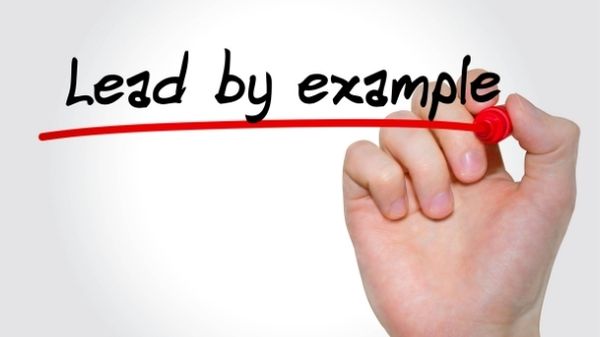Your little munchkin is growing up super fast, and you’re trying your best to turn them into happy and empathetic human beings instead of the self-centered and glass-half-empty ones.
So, you make them say ‘thank you’ to others. But is that all gratitude is, or there’s more to it?
Gratitude comes from a strong feeling of contentment and appreciation. It’s a feeling of thankfulness that is highly correlated with greater happiness and satisfaction in life. A lot of research has been done on its impact on adults over the years. But, recent studies have revealed that it’s no less useful for the young ones.
I’ve got you covered if you were wondering how to explain this heavy topic to your child, along with the whys and hows.
Let’s get right to it; let’s take a look at teaching gratitude to your children.

How do you explain gratitude to a child?
It can feel like a tricky concept to explain to your child. They don’t understand the act of appreciation until they’re about 3-year-old.
So, when you’re trying to instill genuine gratitude in them, don’t expect them to understand it right away.
By the age of 4 to 5, they start expressing appreciation more frequently but don’t reach the level you want them.
So, make gratitude as simple as being thankful for having all the cool toys and enjoying them instead of constantly nagging for new ones.
-

Bold Male Pride – Baseball Trucker Cap Celebrating Masculinity
£18.00 Select options This product has multiple variants. The options may be chosen on the product page -

Dad Bod Appreciation Gift Mug
£14.00 Add to cart -

Dad Bod, Bad Jokes Structured Baseball Cap
£22.00 Select options This product has multiple variants. The options may be chosen on the product page
Explain how simply saying thank you can make someone’s day better, and that’s why they should say it whenever anyone does something nice for them.
Another way to make this a part of their mindset and lifestyle is to tell them that counting blessings will multiply their happiness.
Children learn from watching their parents, and they like to copy them. So, once they’ve got a basic idea of gratitude, explain it with your actions instead of words.
Some quick benefits of gratitude.
Why is it essential to teach gratitude from a young age?
Teaching them good manners is one reason, but there is more to it than meets the eye. Research has shown that children experience numerous physical and psychological benefits when they routinely practice being appreciative. They tend to
- become happier and more generous
- sleep better
- focus better and have better grades
- have good interpersonal skills and make more friends at school
- don’t get jealous of others as often
- show more empathy and less aggression
- get better at managing stress
- experience fewer physical problems and positive mental wellbeing
- see an improvement in self-esteem and resilience
5 ways to teach your children gratitude from a young age
While expressing gratitude should come spontaneously, and you don’t want to force it on them, you do need to teach them the art of being grateful from a young age. So let’s see how to make it a habit for your children that’ll stick.
Lead by Example

Setting a good example for your kid is the best way to teach them anything. They not only share your genetic similarities but also like to mirror your gestures, actions, and behaviors.
So, if you want to instill gratitude in your kids, you need to model appreciation for them religiously and sincerely.
Make sure you say ‘thank you’ to the waiter when he’s serving you food, the doorman when he’s holding the door, or anybody who does something for you.
Also, thank your kids when they help you set the table or clear the dinner table afterward.
Make time to express gratitude for all the good things you’re blessed with. Ask them what they’re grateful for. When they see you appreciating your blessings and thanking people all the time, they learn to do the same.
Don’t Indulge Their Every whim.

Of course, there’s nothing wrong with occasionally spoiling your kid with new toys and candies.
But, if you shower them with whatever they want and whenever they want, you aren’t giving them the chance to appreciate the toys or video games they already own.
When you say ‘yes’ to their every whim, they start to take it for granted instead of learning the value of their possessions. So rather let them relish the new toy for a little while before getting them the next one they asked for.
Ask them to start a gratitude journal. You can offer them incentives for filling up the pages with things they feel grateful for and let them earn their next toy by being more appreciative of the existing ones.
Also, give them chores to do to appreciate it when others do something for them.
Encourage Selfless Act of Kindness

As I’ve mentioned earlier, your kids learn from you the best when you live out what you preach. Start donating stuff to the less fortunate people in front of them and tell them how amazing it feels to be on the giving end of aid.
When they see that you’re giving away your favorite clothes after buying a new one, they learn to donate their clothes and toys.
If you volunteer in a soup kitchen or a nursing home, bring them with you to teach children the virtue of giving back to society.
They might not like it right away, and it can be a steep learning curve. So be patient and keep cheering them on whenever they express appreciation to someone.
Ask them to send thank you notes to their favorite teacher, coach, or a friendly elderly neighbor at the end of the year.
Teach Them Contentment

If your young one always sees you complaining about your workload after the big promotion instead of celebrating the perks that came with it, they won’t learn the value of contentment.
Having a grateful perspective will allow them to feel more content and appreciative of their wins, however big or small they are.
That way, they’ll also find the silver lining in a bad situation that will help them grow up as happier and more optimistic individuals than those who grew up watching their parents whining about the half-empty glass.
While teaching gratitude to your child, create a dinnertime ritual of sharing how your day went and talk about at least one good thing that made your day. Ask them about their day at school and if they can name their blessings.
Incorporate Activities to Make it Fun

How about a gratitude jar? Whenever your child or anyone in your family thinks of something they’re grateful for, tell them to write it down on paper and put it in the jar. Once the jar is filled with the notes, sit together and empty the jar to read them aloud.
You can also make a gratitude tree to take a leaf from the tree (made of paper) and write down what they’re thankful for. When we teach our kids something as crucial as gratitude, you can celebrate thanksgiving every day!
Treat them to a gratitude walk. Wondering what that is? You take your kid out in nature, watch a beautiful sunset together, listen to birds singing, or stop to smell the roses. Show them how to find thankfulness in non-material things in life.
Conclusion
Like making any new habit stick, cultivating gratitude takes your unwavering commitment, consistency, and patience as a parent.
Once your child gets the hang of it, you won’t have to remind them all the time to practice it as it’ll become their second nature.
Till then, keep doing your best and enjoy the journey.
Good luck!






